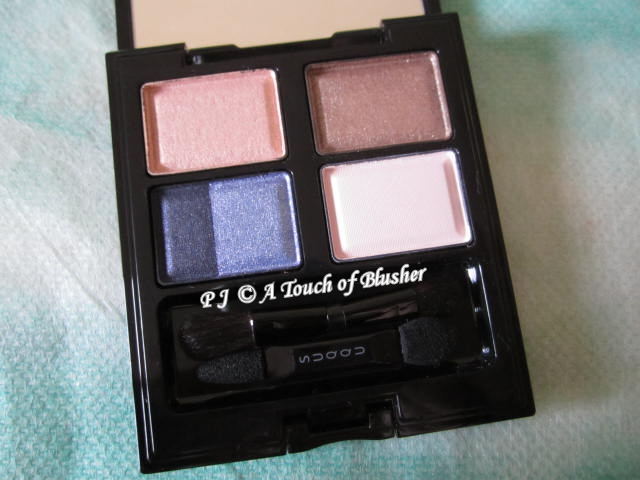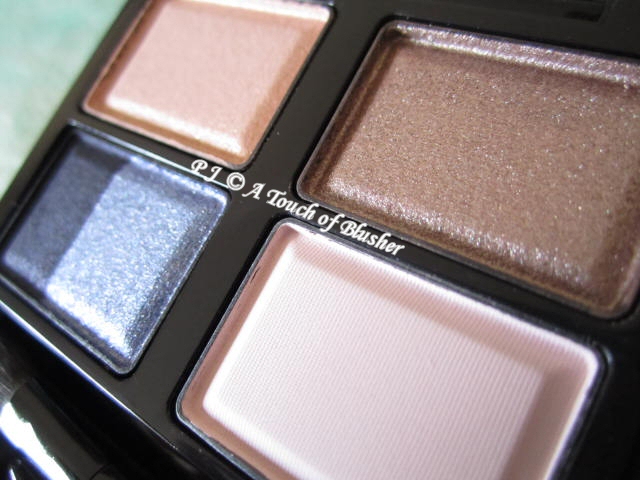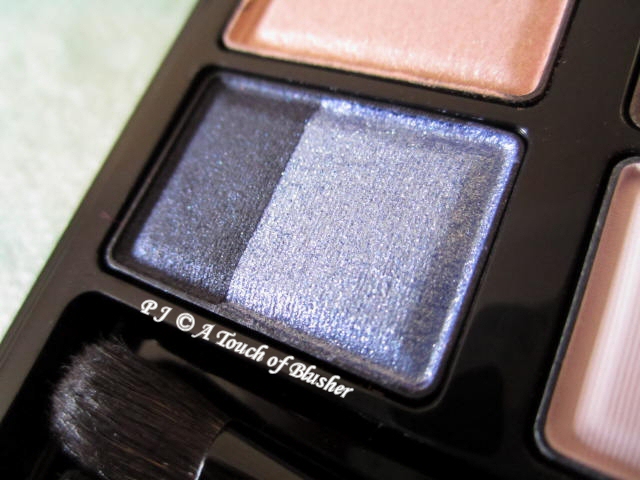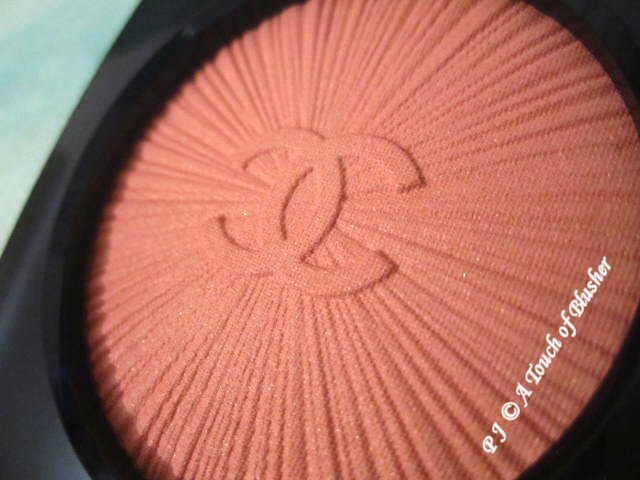Launched on May 18th in Japan, SUQQU‘s Blend Color Eyeshadow in 12 Konruri (the only makeup release from SUQQU for summer 2012) replaces 01 Kakitsubata (launched in fall 2010 and discontinued on May 17th in Japan). While they do appear similar, both their color tones and color compositions are considerably different and I think most people are likely to have a clear preference for one over the other. Today I am taking a closer look at 12 Konruri.
The five colors in Blend Color Eyeshadow in 12 Konruri (¥7140 in Japan, £45 in the UK) are (anti-clockwise from bottom right):
– pink ivory, softly pigmented, velvety matte with no shimmer
– medium taupe brown, moderately pigmented, with soft pearly shimmer
– light peach, lightly-to-moderately pigmented, with soft pearly glow
– dark navy blue, well-pigmented, velvety matte with a hint of shimmer
– medium cool-toned ocean blue, moderately pigmented, with soft pearly shimmer
All the shimmer is subtly multi-colored, and all the shades have a good staying power.
I think the best way for me to review this palette is to compare it with two other Blend Color Eyeshadows that I have reviewed: 01 Kakitsubata (link above) and 10 Kozuecha.
12 Konruri vs. 01 Kakitsubata
Kakitsubata is the warmer of the two, as its golden brown is much warmer than Konruri’s taupe brown. Based on this, Kakitsubata suits me a lot more. (Even though I do like the softly shimmery finish, Konruri’s taupe brown can look grayish on my warm-toned complexion.)
However, Konruri’s medium blue (which is my favorite shade in the palette) makes the palette much more versatile than Kakitsubata. Both the medium blue and the taupe brown can be used as shadowing shades, and you can create a variety of looks with this palette. I generally use just one of the two as I tend to go for simpler gradational looks with one shadowing shade, but nonetheless the two shades give me the options of two completely different looks.
(When I do wear the two colors at the same time, the only thing I need to be careful with is that the freshness of the medium blue can be compromised when the edges of the two shades merge.)
12 Konruri vs. 10 Kozuecha
Both palettes are among the newer releases of Blend Color Eyeshadows since spring 2012, which have an extra shade. What I like about the two shades in the split-pan in Konruri is that their color depths are much more varied than those of the two dark browns in Kozuecha, which only vary in finish (not in color).
Finish-wise, Kozuecha is generally slightly more shimmery than Konruri. (The two shades at the top of Kozuecha are slightly more glowy and shimmery than the two in Konruri.)
Despite Konruri’s versatility, I prefer Kakitsubata, which remains one of my favorite neutral palettes. However, the cooler tones in Konruri are likely to appeal to those who find Kakitsubata too warm to work with. Also, as SUQQU’s eyeshadow shades are either variations of neutrals or other low-key colors, the fresh and relatively vibrant medium blue, rarely seen in SUQQU’s eyeshadow lineup, makes Konruri a unique palette. Objectively speaking, Konruri is a solid replacement of Kakitsubata and I think this successor may possibly prove to be even more popular.
(For swatches of both Kakitsubata and Konruri, please have a look at this blog post by Rosy at All Made Up/ Nowhere To Go.)
(The product featured in this article is provided by SUQQU.)
Related posts:
SUQQU Fall 2012 Makeup Collection







{ 0 comments… add one now }